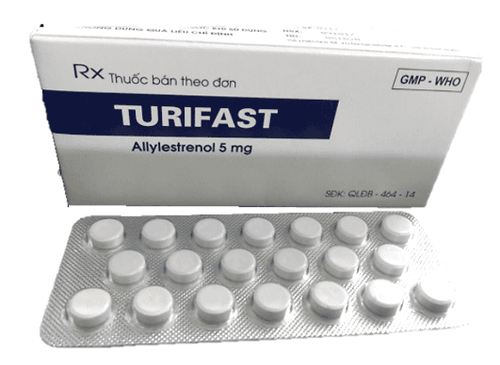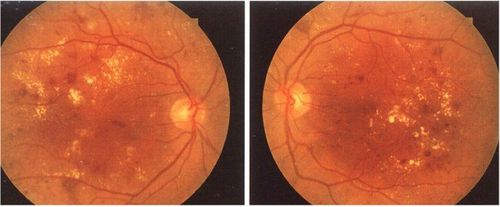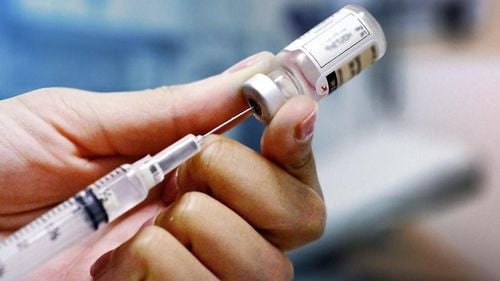This is an automatically translated article.
This article is professionally consulted by Master, Resident Doctor Dang Thi Ngoan - Pediatrician - Neonatologist - Department of Pediatrics - Neonatology - Vinmec Ha Long International Hospital. Uncle used to be a lecturer in the Department of Pediatrics - Hai Phong University of Medicine and Pharmacy, and was granted a certificate in Pediatrics at home and abroad such as: Westmead Hospital, Australia; Hai Phong Medical University. Doctor has strengths in the diagnosis and treatment of diseases in infants and young children.Retinopathy of prematurity, if not detected and treated early, can lead to permanent loss of both eyes. Therefore, parents should note that children born prematurely, prematurely or lightly need to be screened for retinopathy as soon as possible.
1. Why is it important to screen for retinopathy of premature babies?
Retinopathy of prematurity, abbreviated as ROP is an eye disease in babies, caused by abnormal development of blood vessels in the retina of the baby. Babies born prematurely, with low birth weight or prematurely are at high risk of developing this disease.
If not detected early and treated properly, retinopathy can lead to permanent blindness in children.
2. How does the development of retinopathy in children take place?
The process of development of ROP in children is as follows: New born premature babies do not have ROP disease but only have immature retinal blood vessels, not having enough blood supply to the retina. ROP will appear some time after birth if retinal blood vessels develop abnormally, meaning that not all premature babies develop ROP.When retinopathy is present, one of the following 3 situations may occur:
Mild disease that will heal on its own without any treatment Moderate disease, will partially heal without treatment, but requires monitoring long-term to avoid late complications. Severe disease requires prompt treatment, otherwise, most cases will cause permanent blindness. The doctor recommends that the following children need an eye exam to detect retinopathy and related abnormalities:
Birth weight less than 1,500g or gestational age less than 33 weeks (7.5 months) at birth. Weight at birth is from 1,500g to 2,000g, but at birth there was asphyxia, incubator, prolonged oxygen breathing, there were other comorbidities and the neonatologist ordered an eye exam. Birth weight from 1,500g to 2,000g and multiple pregnancies (twins, triplets...). In general, the lower the baby's birth weight or the younger the gestational age, the higher the risk of retinopathy, the more careful parents need to take their child to a doctor.

Trẻ khi sinh nhẹ cân cũng có nguy cơ cao mắc bệnh võng mạc
3. Diagnosis and treatment of retinopathy of prematurity
In the early stages, retinopathy in premature babies cannot be detected with the naked eye, because when viewed outside, the eyes are still normal. Once the disease has manifested outside, it means it is at a late stage, no longer curable, and the consequences for the child to be permanently blind are very high.
ROP needs to be screened after the baby is about 4 weeks old, the ophthalmologist will use a special machine with a converging lens called an indirect ophthalmoscope to accurately assess and monitor the baby .
When the child has been detected with retinopathy, the doctor will consider choosing the appropriate treatment method. Currently, there are 2 main methods: cryotherapy and laser retinal treatment.
Depending on the severity of the disease, if the disease is mild or moderate, if detected early, the treatment effect is quite good. When detected late and the disease has progressed to the retinal detachment stage, the child will be permanently blind. Besides, after treatment, the child's backward vision function depends on many factors in the development process.
Although retinopathy has been treated in premature babies, for the safety of the eyes of the child, follow-up and follow-up visits by the doctor is very important, parents cannot ignore.
Depending on the medical condition, the doctor will schedule a follow-up visit 1 week or 2 weeks later or sometimes need to treat immediately. Children need to be examined and monitored until the critical period is over or the retinal blood vessels are fully developed.
When children have retinopathy, even if it is a mild form that does not require treatment, some late complications may still occur such as myopia, strabismus, glaucoma, delayed retinal detachment. Therefore, long-term monitoring of children in a pediatric ophthalmology hospital is necessary for timely detection and intervention. In particular, it is necessary to pay attention to cases where the disease in one eye or in one eye is more severe than the other.

Việc theo dõi tình trạng mắt trẻ sau điều trị rất quan trọng
4. What should parents do to get their children screened for retinopathy?
Before taking a premature baby for retinal screening, parents need to prepare:
Register before the examination date: Before the examination, the child will be given a pupil dilator so that the doctor can observe the entire retina. better fascia. Therefore, it is necessary to go to the clinic for an appointment in advance (when registering, you do not need to bring the child) and bring the child to the scheduled date and time. Before the examination, it is necessary to let the child fast for at least 1 hour because during the examination, the child often cries, to avoid aspiration of milk, which can be dangerous and can cause death. The child also needs to be fasted from the time the pupil dilator is instilled. Bring the necessary documents: hospital discharge papers, antenatal check-up papers, referrals for eye exams, mother's ultrasound, appointment re-examination... are all necessary, need to bring them because it will provide information related to pregnancy, neonatal period. If the baby is born prematurely, and is in the group of subjects at high risk of retinopathy, they should be taken to a specialized medical facility and examined with an experienced neonatologist for examination.
As a key area of Vinmec Health system, Pediatrics Department always brings satisfaction to customers and is highly appreciated by industry experts with:
Gathering a team of top doctors and nurses in Pediatrics : consists of leading experts with high professional qualifications (professors, associate professors, doctorates, masters), experienced, worked at major hospitals such as Bach Mai, 108.. Doctors All doctors are well-trained, professional, conscientious, knowledgeable about young psychology. Besides domestic pediatricians, the Department of Pediatrics also has the participation of foreign experts (Japan, Singapore, Australia, USA) who are always pioneers in applying the latest and most effective treatment regimens. . Comprehensive services: In the field of Pediatrics, Vinmec provides a series of continuous medical examination and treatment services from Newborn to Pediatric and Vaccine,... according to international standards to help parents take care of their baby's health from birth to childhood. from birth to adulthood Specialized techniques: Vinmec has successfully deployed many specialized techniques to make the treatment of difficult diseases in Pediatrics more effective: neurosurgery - skull surgery, stem cell transplantation. blood in cancer treatment. Professional care: In addition to understanding children's psychology, Vinmec also pays special attention to the children's play space, helping them to have fun and get used to the hospital's environment, cooperate in treatment, improve the efficiency of medical treatment. To register for examination and treatment with Pediatricians at Vinmec International General Hospital, please click the "Contact Us" button on the website or register online HERE.

Bạn nên đặt lịch khám trước cho trẻ














